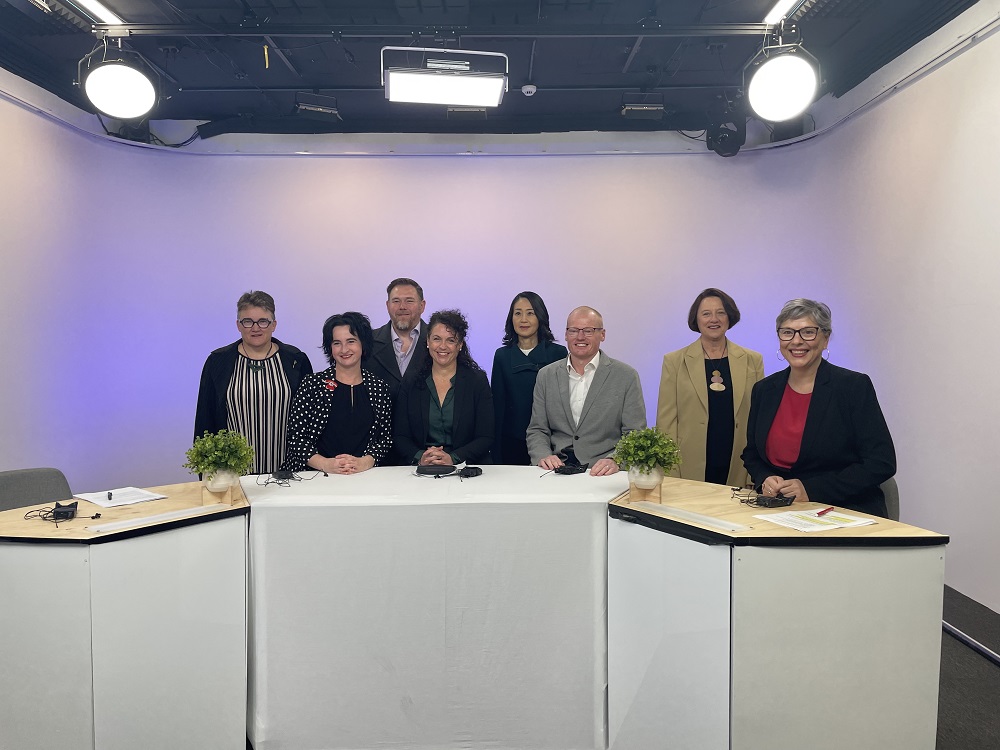Elly Mackay
14 June 2023: Australians are shifting their news consumption habits – with women less interested in news than men, and young people moving to social media to get their news – a report from the News and Media Research Centre (N&MRC) at the University of Canberra has revealed.
The Digital News Report (DNR): Australia 2023 was released today, showing that Australia’s previously high interest in news has fallen to 53 per cent – among women, that figure has hit a record low of 43 per cent.
The report – released this morning via a webinar – is part of a global research project involving 46 countries, co-ordinated by the Reuters Institute for the Study of Journalism at the University of Oxford.
Results were produced following an online survey with a sample size of 2,025 Australians; the sample is reflective of the population demographic that has access to the Internet.
Lead author of the report Professor Sora Park said the 2023 report findings generally indicate good news for the media industry.
“This year the number of people paying for online news continues to grow, placing Australia among the top countries globally,” Dr Park said.
“One in five Australians pay for online news, and those who already pay are increasing the number of subscriptions – we found the top reason consumers are paying for access is to consume higher quality news than they might find through free sources.”
Despite this, those Australians affected by cost-of-living issues are more likely to cancel news subscriptions, with 80 per cent of respondents saying they have been affected somewhat or a great deal by rising living expenses.
“Like every industry, the media can expect to be hit by the cost-of-living crisis, and it’s understandable that those who have been the most affected are more likely to cancel news subscriptions,” Professor Park said.

News avoidance remained steady this year at 69 per cent, with Australia six percentage points above the global average. Certain demographics, including social media users, young people, and women are the most likely to scroll past or ignore news.
Professor Park said these attitudes are reflected in the continued decline in news consumption, particularly among women.
“The fall in interest in news and news consumption being higher among women than men is widening the gender gap,” Professor Park said.
“This year, Australia has the widest gender gap globally in news consumption, with the trust gender gap also widening – there was a steep rise in trust among Australian men to 48 per cent, but a drop among women to 39 per cent.”
Young people are also making waves when it comes to using social media for news consumption. Instagram (26 per cent) and TikTok (17 per cent) continue to grow as news platforms for Gen Z.
“We’re also seeing a difference in who audiences will pay attention to on different news platforms,” Professor Park said.
“On Facebook, Instagram, Twitter and YouTube, people pay most attention to news from mainstream media and journalists – but on TikTok, users pay more attention to news from ordinary people and social media influencers.”
News podcasts are another emerging platform, according to the report, with 38 per cent of respondents saying they have listened to a podcast in the last month.
“Spotify and YouTube remain the most popular platforms for podcast listening, suggesting a preference among respondents for bundling them in with other content like videos and music,” Professor Park said.

With every mention of social media comes the ever-growing discussion around algorithms – so, as news consumers, what do we think about them?
According to the report, Australians are concerned they might miss out on important information (61 per cent) or challenging viewpoints (57 per cent) because their news is selected by editors or algorithms – in the global stakes, Australia is the second most nation concerned about algorithms.
“People are not supportive of having news automatically selected for them based on their friends’ consumption – with 46 per cent agreeing it isn’t a good way to get news,” Professor Park said.
“Over a third of people – 35 per cent – prefer news algorithms to select news based on their own past consumption.”
Other key findings include:
- News access continues to decline, with heavy news consumption in Australia going down by four percentage points and traditional news media like TV, print and radio continuing to decline;
- Trust is up slightly, with general trust in news rising by two percentage points to 43 per cent;
- Australians are careful when talking about politics – more than one-third (37 per cent) say they don’t discuss politics online or on social media, compared to the 22 per cent who will talk about it in person or on the phone;
- Australians want good news – 56 per cent of us say we want positive news stories, and are less likely to avoid stories that make us laugh (8 per cent); and
- There has been a significant drop in heavy news use by Gen Z to 36 per cent – down 10 percentage points.
Read the full report here.


